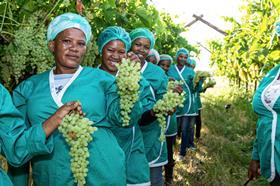
Raisins South Africa, the non-for-profit organisation that represents over 1,000 raisin farmers, has announced that its strategic focus is guided by two main pillars of sustainability: good corporate governance and economic resilience.
The organisation has reported that its overall business objectives adhere to the Triple Bottom Line (TBL) concept, an idea developed by John Elkington in 2001, which links sustainable development to commercial business.
This concept goes beyond the objective to earn financial returns for shareholders, to further include social and environmental dimensions, creating a 'triple bottom line'.
“Raisins South Africa is part of the strong global drive for more agri-food industry practices that are environmentally friendly, socially acceptable, and still economically rewarding,' said Ferdie Botha, CEO of Raisins South Africa.
“We are ensuring good corporate governance at industry association level to ensure sustainability becomes a driving factor in our research and development activities,' he explained. 'We understand the process of decision making in economic, environmental and ethical spheres. We are committed to corporate ethics, accountability, participation, and holistic management when it comes to working in partnership with our raisin growers.”
Agriculture is the largest economic sector in South Africa, providing livelihoods and food products to both local and global populations.
The South African raisin industry alone offers 30,000 job opportunities, thereby significantly creating jobs in a country experiencing its highest ever unemployment rate.
Raisins South Africa said that the management of its raisin industry was therefore key to the current global debate on future sustainability.



